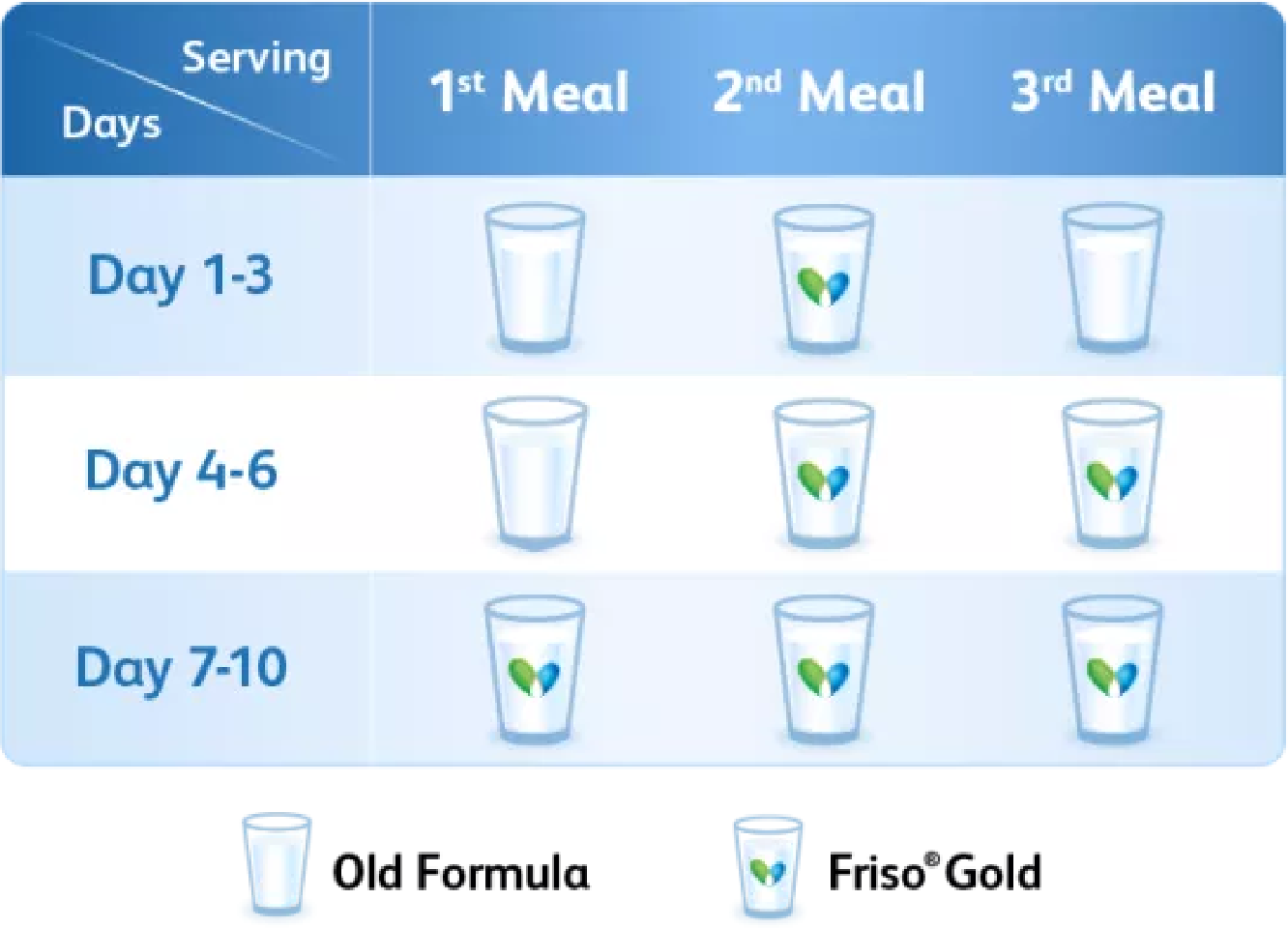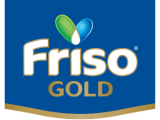Why Friso® Gold
The Benefits of Unflavoured Formula Milk with No Added Sucrose

Friso® Gold's formula has no added sucrose and flavour, allowing your child to appreciate the natural goodness of our light-tasting formula.
Why Choose Unflavoured Formula Milk with No Added Sucrose?
When it comes to formula milk, it's crucial to consider varieties with no added sucrose as high intake of added sugars may lead to tooth decay, obesity and diabetes.
With Friso, which comes with no added sucrose and flavor, you can give your child the nutrients that are essential for optimal development while setting the foundation for a healthier diet.
Why is Unflavoured Formula Nutritious for Children?
Closer to Nature
Unflavored formula captures the goodness of milk. Without added sucrose or flavour, the formula resembles natural lactose's role in promoting healthy development in young children.
Food preferences are developed early in life. Unflavored formula helps to children develop lifelong taste preferences and eating habits. Early experiences with nutritious foods and natural flavour variety may maximize the likelihood that children will choose a healthier diet as they grow up1.
Benefits of Sucrose-Free Formula
-
Supporting normal body weight and Dental Health
Limiting the intake of sucrose-containing foods and drinks is favorable for keeping healthy body weight. Moreover, formulas that do not contain sucrose can support good dental health, a crucial yet often overlooked aspect of children’s wellbeing2.
-
Steady Nutrient Absorption and Benefit on the Microbiome
Natural lactose is beneficial for maintaining stable blood sugar levels which is crucial for your child's overall well-being. Sucrose-containing foods and drinks induce a peak in blood sugar levels which over long-term may have negative health consequences4.
Lactose, as naturally present in milk, stimulates the growth of specific beneficial bacteria in the gastrointestinal tract5,6. Dietary sucrose can contribute to an unfavorable gut microbiome composition7. Additionally, high sucrose consumption may alter the composition and colonization of the gut microbiome8,9.
Introducing Your Child to Unflavoured Formula
Starting your little one on unflavored formula milk early brings with it long-lasting benefits. Of course, your child may notice a slight difference in taste at first. We understand and we’re here to help make the transition easier with the below proposed transition guide:

If your little one requires additional assistance, we recommend incorporating complementary foods such as bread, biscuits, or cereal with our milk, particularly if they're consuming it from a cup.
References
- Fidler Mis N, Braegger C, Bronsky J, Campoy C, Domellöf M, Embleton ND, Hojsak I, Hulst J, Indrio F, Lapillonne A, Mihatsch W, Molgaard C, Vora R, Fewtrell M; ESPGHAN Committee on Nutrition:. Sugar in Infants, Children and Adolescents: A Position Paper of the European Society for Paediatric Gastroenterology, Hepatology and Nutrition Committee on Nutrition. J Pediatr Gastroenterol Nutr. 2017 Dec;65(6):681-696. doi: 10.1097/MPG.0000000000001733. PMID: 28922262.
- Schaafsma, G. (2008). Lactose and lactose derivatives as bioactive ingredients in human nutrition. International Dairy Journal, 18(5), 458-465.
- Romero-Velarde, E., Delgado-Franco, D., García-Gutiérrez, M., Gurrola-Díaz, C., Larrosa-Haro, A., Montijo-Barrios, E. et al. (2019). The importance of lactose in the human diet: outcomes of a mexican consensus meeting. Nutrients, 11, 2737.
- Augustin, L. S., Kendall, C. W., Jenkins, D. J., Willett, W. C., Astrup, A., Barclay, A. W. et al. (2015). Glycemic index, glycemic load and glycemic response: an International Scientific Consensus Summit from the International Carbohydrate Quality Consortium (ICQC). Nutr Metab Cardiovasc Dis, 25(9), 795-815.
- JanssenDuijghuijsen, L., Looijesteijn, E., van den Belt, M., Gerhard, B., Ziegler, M., Ariens, R. et al. (2023). Changes in gut microbiota and lactose intolerance symptoms before and after daily lactose supplementation in individuals with the lactase nonpersistent genotype. Am J Clin Nutr, S0002-9165(23)66349.
- Francavilla, R., Calasso, M., Calace, L., Siragusa, S., Ndagijimana, M., Vernocchi, P. et al. (2012). Effect of lactose on gut microbiota and metabolome of infants with cow’s milk allergy. Pediatr Allergy Immunol, 23(5), 420-427.
- Kawano Y, Edwards M, Huang Y, Bilate AM, Araujo LP, Tanoue T, Atarashi K, Ladinsky MS, Reiner SL, Wang HH, Mucida D, Honda K, Ivanov II. Microbiota imbalance induced by dietary sugar disrupts immune-mediated protection from metabolic syndrome. Cell. 2022 Sep 15;185(19):3501-3519.e20. doi: 10.1016/j.cell.2022.08.005. Epub 2022 Aug 29. PMID: 36041436; PMCID: PMC9556172.
- Liu J, Liu H, Teng Y, Qin N, Ren X, Xia X. A high-sucrose diet causes microbiota composition shift and promotes the susceptibility of mice to Salmonella Typhimurium infection. Food Funct. 2023 Mar 20;14(6):2836-2846. doi: 10.1039/d2fo03467k. PMID: 36880221.
- Zhang X, Zhang B, Peng B, Wang J, Hu Y, Wang R, Wang S. Different Dose of Sucrose Consumption Divergently Influences Gut Microbiota and PPAR-γ/MAPK/NF-κB Pathway in DSS-Induced Colitis Mice. Nutrients. 2022 Jul 4;14(13):2765. doi: 10.3390/nu14132765. PMID: 35807944; PMCID: PMC9268685.
